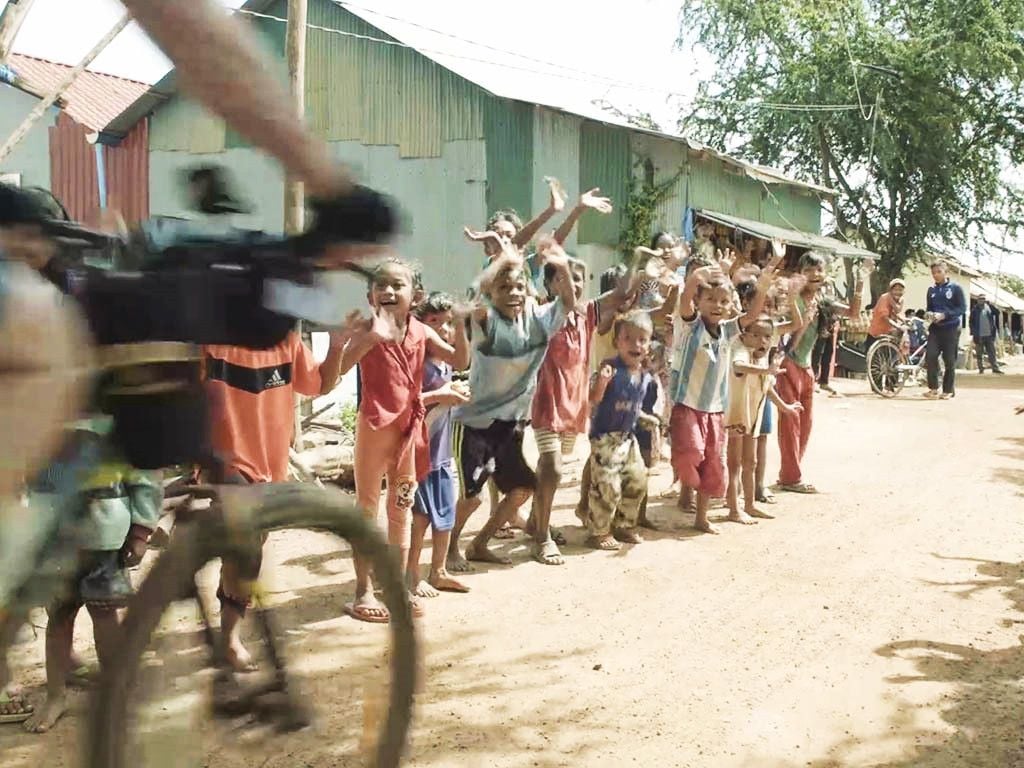Social Cycles are one of the hosts from our Adventures for Good collection. We got in touch to talk to them about their mission, how they’re changing the way travellers look at adventure, and how your adventure helps.
Please tell us a bit more about Social Cycles, what’s your mission?
Social Cycles host small group cycle adventures for travellers with a social conscience. We engage with local experts (NGOs) to learn about social issues, challenges and strategies so that we can gain the knowledge to make a positive difference. We will test your physical boundaries, challenge your perception of charity and completely open your mind.
We’re all up for mind-opening, how does it work?
It’s a simple but powerful idea. Our aim is to introduce you to real, sustainable and local NGOs across the developing world and allow them to teach you about what really happens in their country. It’s about connecting like-minded people, and connecting people who want to help with NGOs that need help.
For every tour, all riders are requested to contribute a nominal sum for the purpose of a donation – usually approx £110 per rider. During the course of the tour, you are given the chance to engage with, and learn from, local NGOs. We visit no less than four NGOs during every tour and spend some time learning about their projects, strategies and challenges. At the end of the tour, the riders are then empowered with new found knowledge and have the opportunity to combine the allotted donation money and make an impact towards a project of their choosing.
In addition to building a profile for our NGO partners, we also reimburse them for their time and resources. You’ll spend 1-2 hours with each NGO who are then remunerated, regardless of whether or not there is a follow up donation from the group.
If at the end of the tour, you do not feel that there is a connection or the money would not be used wisely, then of course you do not have to donate. It’s important you feel a connection to where you money is going.
Let’s also not forget you’ll be cycling through stunning landscapes in countries such as Cambodia, Vietnam and Iran.

Tell us about some of the NGO’s you visit.
Every trip features talks from at least four NGO’s, which are highly varied. In Cambodia for example, we visit Friends International, who are leading the charge in the ‘ChildSafe’ movement and the ‘Think Families, Not Orphanages’ campaign. They have an office in Phnom Penh, which makes for a great introduction to Cambodia. Sustainable Cambodia are a grass roots locally run NGO operating in the province of Pursat, focusing on everything to do with education and community development. This results in the operation of pre-school centres in remote villages, supplementary schooling programs, WASH initiatives, vocational training, agricultural pass on programs, community gardens and recycling education, just to name a few. In Battambang, both Cambodia Children’s Trust (CCT) and Ponleur Kumar (PK) are located. PK are also locally run and have some of the best micro-finance and community garden programs in Cambodia. CCT, established by Aussie Tara Winkler, is creating a model which could (and should) drastically reduce institutionalised residential care for children and keep them with their families. In Siem Reap, we’ll find This Life Cambodia and Grace House. This Life Cambodia have pioneered a program (among other things) that virtually eliminates the risk of youth re-offending after prison and Grace House is pioneering the way for the care of disabled children in Cambodia.
What has the feedback been like?
It’s been great. We’re a young organisation which has only been going a couple of years. But this is an alternative style of adventure which really connects people to the country they are visiting in order to provide a richer and more rewarding experience.
“The NGO visits fostered a lot of important discussion as we learnt about the individual organisations as well as Cambodian history and culture, sustainable tourism and international development. I found both the visits and the subsequent conversations and private ponderings challenging and very rewarding”. Bec, February 2018.
Photos courtesy of Social Cycles

